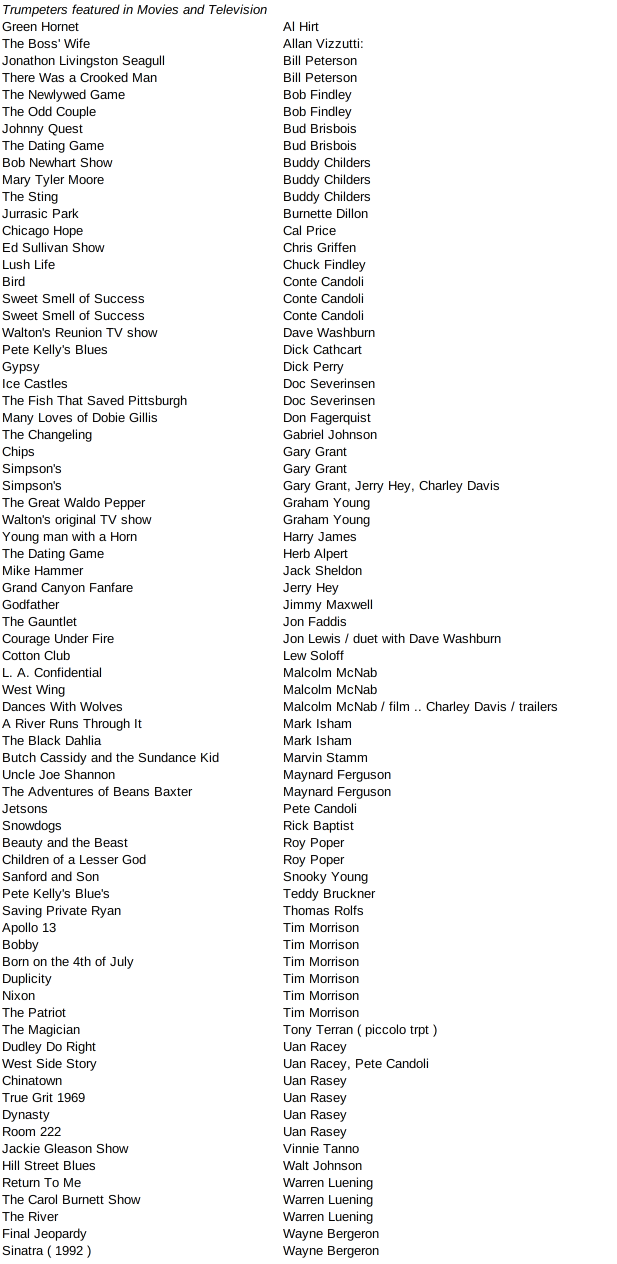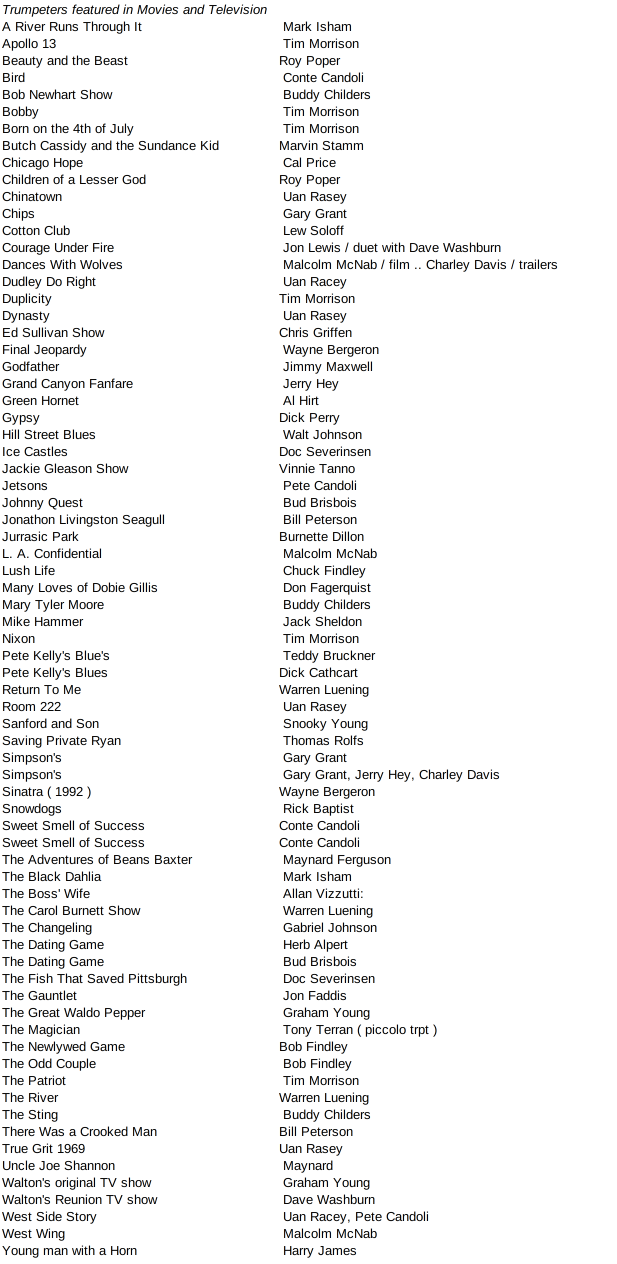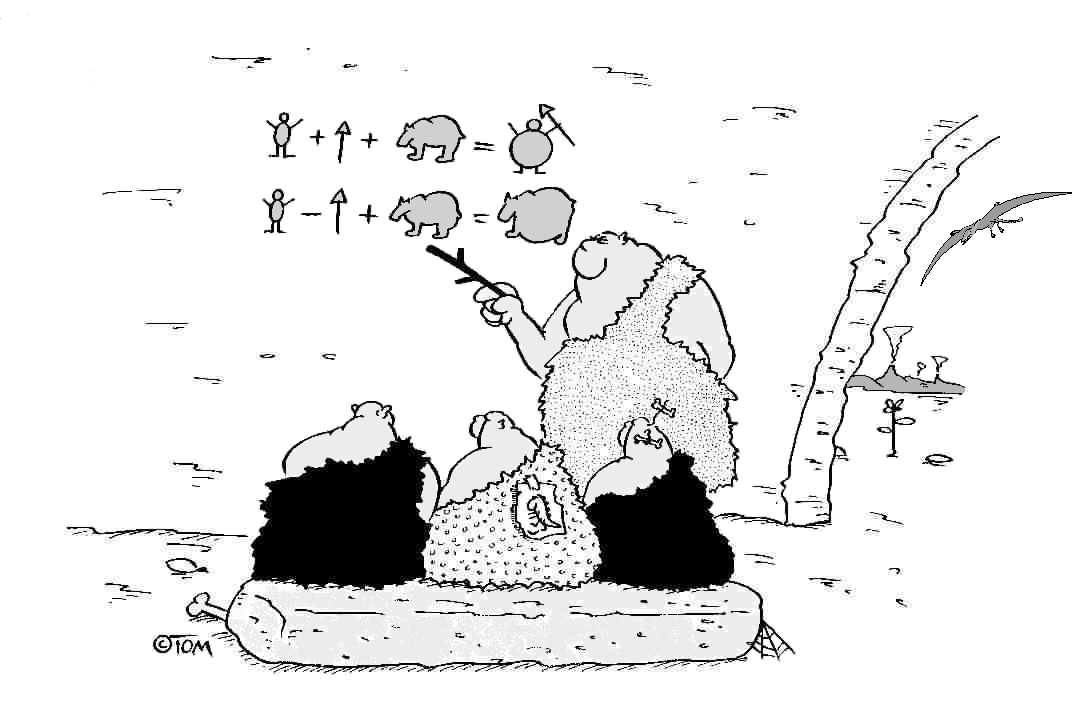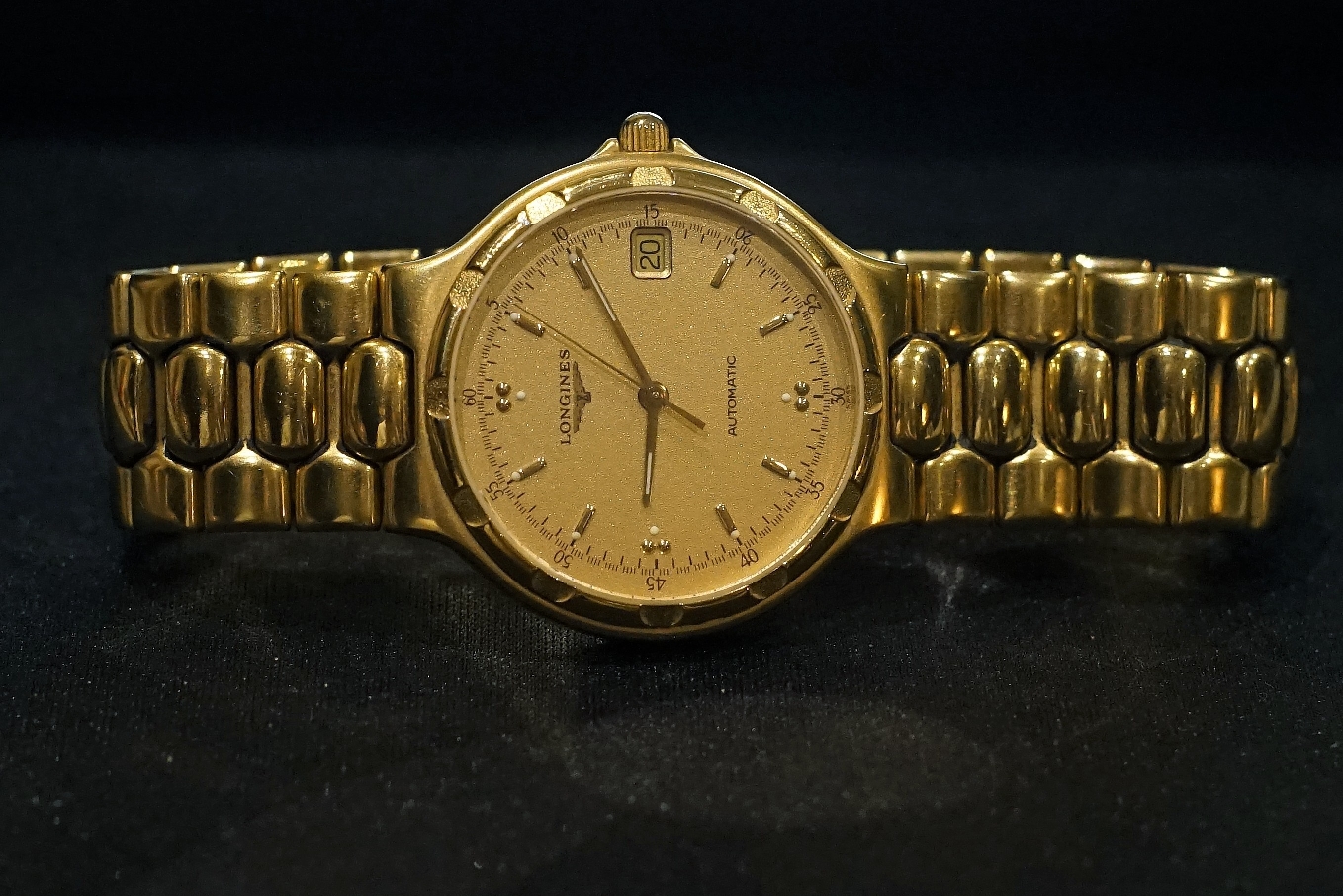Best posts made by grune
-
RE: Does a large bore horn take more air?posted in Instruments Discussion
Well, allow me to have a go at this, please. Correct me if incorrect. Simplistic...
The question is: do I need more air for a larger bore? The answer: it depends.
Why: Boyle’s Principle. Pressure and volume have an inverse function. If volume increases, pressure decreases.
Why is this relevant? Our ears. Our ears respond to 2 factors only: pressure and vibration. Our ears transform pressure and vibration into a signal to our brain, and our brain interprets this signal as sound.
So, to produce a sound from a trumpet, we need pressure and vibration. So how to do?
First, some basics.
- A trumpet is filled with ambient air, and air has mass, and thus the ambient air will have an inertial resistance to change.
- To produce a sound, that air must be disturbed; i.e perturbed, which results in perturbations.
- When the perturbations repeat consistently in cycles over a unit of time, they become vibrations, and we call this a frequency.
- When we increase the pressure of the perturbations within the trumpet, we increase the potential energy of those perturbations; and when that energy is released at the end of the trumpet (the bell), we hear this release of increased pressure as an increase in amplitude (loud).
- No frequency, no sound. The source and means of frequency is our lips.
- No pressure, no sound. The source and means of pressure is the air from our lungs applied to the ambient air inside the trumpet.
Q1. So, do WE need air to make a sound?
A1. YES. Why? The air we push out from our lungs vibrates our lips. No air across our lips, no vibration. Try vibrating your lips without blowing air through them.Q2. Does the trumpet need extra air to make a sound?
A2. NO. Why? The trumpet is already filled with ambient air. It needs a perturbation and a pressure to get that air to vibrate and produce the sound we hear.Q3. So why do we see almost no air flowing out of the horn, when we use the smoke method? After all, when we ‘blow’ into the mouthpiece, we feel the release of air from the mouthpiece (m/p). Why is the bell output different from the m/p input (ie why the smoke test shows near zero air flow)?
A3. The key is Volume.
(a) First, we need to know exactly what occurs when air is vibrated at a specific frequency.
A wave is created, having nodes and antinodes. Textbooks illustrate this as a 'sine wave'; but this is incorrect, actually. Both the sine and cosine waves should be shown graphically, sort of like this … ∞∞∞ (I am trying to keep the physics to a minimum).
Why is this important? Because this is how the wave forms inside the trumpet, what exits, and what you hear. What we hear is the antinode, because this is the amplitude: the node has zero amplitude, but maximum pressure. The node must form at the bell: thus the bell shape and volume are critical for sound.
(b) If you blow directly into the lead pipe, you will feel air flow out of the bell (but no pitch). But the outflow will very be very much slower than what you inflow, and it will have much less force (pressure). The reason is simple; volume. As volume increases, pressure must decrease. If the outflow point has a much greater area than the inflow point, the flow from input to output will be very much reduced. The analogy is using a garden hose to fill an outdoor pool. Only a very small volume of water can be pumped through a garden hose, but with high pressure the flow velocity can be very high. If a small volume container is filled, the fill rate is rapid. But try to fill a pool, and the fill rate is very slow. The reason is volume. To prevent overflow, the pool may have an exit port. If the exit port is very much larger in area than the hose nozzle, the flow and pressure of water exiting the pool will be very slow and very low.
(c) So with Volume, Pressure, Velocity, Frequency, we can now comprehend our trumpet and our interaction.
(i) We fill the m/p with a volume of air, moving at some velocity, and vibrating at some frequency. The m/p exit hole is about 3mm. The cup width/depth varies greatly, but let’s peg at 16mm x 8mm. If the bowl is semi-spherical, the max volume will be 2.15ml. The air exiting the m/p will have a noticeable pressure and velocity.
(ii) As our air flows through the trumpet, it must flow through an ever increasing volume. Two results: the pressure decreases; and the wave from the m/p elongates and drops in frequency. If the exit diameter at the bell is 70mm, this alone will account for a reduction of over 20x the input pressure. When we consider the volume of the horn to the m/p volume, the scale factor is huge. Thus the combined factors result in a very low volume and low pressure of air exiting the horn: the resulting air flow may be <1% of the input. Thus we perceive almost zero effects for the smoke test.Q4. So what about sound volume? Why must I blow harder to get more sound volume? Notice: we are talking about “sound volume” (ie Amplitude) exiting the horn, not physical “air volume”.
A4. Pressure. (physics: the node is point of maximum pressure, thus the antinode is the least pressure). Amplitude is the antinode. Thus for a max antinode, we must have a max node (pressure). We create pressure by blowing air into a vessel (m/p) that is less in volume than the feedstock volume (our lungs). The more pressure we create, the more resulting amplitude.Q5. Ok. But what about the high notes? Why do these require more effort than the lower notes?
A5. 2 reasons.
(i) Our bodies are very limited in capacity. Our lips are extremely limited and weak: in “natural” state, they are simply not engineered to vibrate at high tension to create high frequency vibrations. We must train our lips/embouchure into a very unnatural state. This requires effort to develop and to apply on demand.
(ii) High notes result from high frequencies exiting the horn. A high frequency requires many times more nodes than a low frequency. Nodes result from pressure. Thus as frequency increases, we must apply more air pressure to create the nodes AND we must increase the tension in our embouchure. The combined factors result in an exponential function: ever increasing tension and pressure.Q6. Bore. How does the bore of the trumpet factor into all this?
A6. Complicated. The bore relates to the diameter of the tubing at valve #2. In theory, a larger diameter tube will have volume greater than a smaller diameter. But this does not mean a trumpet of L bore will have an overall volume greater than one of ML bore: the bell shape and length is a significant factor to overall volume, and thus an L bore horn can be equal in overall volume to an ML bore horn, and vice versa. Added to this, is the internal resistance of each horn, which is in itself a very complicated aspect to analyse: lead pipe taper; thickness of tubes; radius of bends; bell taper and flare; and more are all factors. Added to this is “dual bore”, where the connection to the bell is usually larger than the rated bore: which creates a lower pressure point within the horn, and presumably this results in lesser internal resistance.So does a larger bore horn require more air? The honest answer is “it depends”.
I hope this long winded post has not bored too many people.
-
RE: Clean with 'alcohol'?posted in Repairs & Modifications
oh my,,, I expected discussion, not aggression. A pity: a reflection upon our times now?
Some excellent points are made, for which I am thankful. I see I should have self-reflected a moment to specify the thread, as one person notes; true, my focus is upon disinfecting; not general cleaning per se. My apologies.
Disinfection is of high concern to me these days. I reside currently in a tropical environment: which, to use a vernacular, is a 2nd world country, with the reduced affluence and sanitation standards when compared to 1st world. In such environment, organisms are everywhere literally and need only a few hours to propagate. I like to keep my horn exposed to open air: enables evaporation, but opens the possibility of air-borne organisms. A proper cleaning pre and post each practice session is impossible. Thus a quick 'treatment' between cleaning rounds is of great benefit.
I have a compromised immune system, and zero immunity to tropical diseases. Even the 'common cold' gives me near-pneumonia symptoms. I have used ethanol for years, as I was then most concerned about single-cell bacteria. But I see now, thanks to this thread, I should include spores in my deliberations and thus alter my methods. The advice and points noted are very helpful.
To summarise the consensus as I see it: ethanol is effective against single cell, and safe; propanol2 is effective against spores and single cell, thus a better choice with caveat; a general cleaning removes 'gunk' with caveat; disinfecting with propanol2 should follow general cleaning.
with thanks,
-
RE: Does a large bore horn take more air?posted in Instruments Discussion
Very interesting discussion. I have not played all trumpets, nor all mouthpieces, ever produced. For those I have played, I find the mouthpiece is the determining factor for all aspects: particularly for the volume of air I feel I need in my lungs. For horns, inconsistent: some M bore have been difficult to play, and some ML bore have been easier to play. Probing my memory from long ago, I recall the medium bore horns had overall a brighter timbre than the large bore, when the same mouthpiece was used for all.
-
RE: Student trumpetsposted in Bb & C Trumpets
@Dr-GO
Agree, the Olds Ambassador was a very good horn - at the student level. It has the attributes you note. It is medium bore, good for a student, but it is easy to overblow as the student develops power. The tone can be very good for a maturing student using a 3C mp or such, and has focus, but it can never approach the sound of say a Bach Strad. It slots well. The intonation within the staff is very good, but the horn has poorer intonation for lower and higher. The 3rd slide helps with low register: but the the 1st valve has no slide and cannot be modified to have a ring - a real pity. The valves on mine were excellent. The coating was natural lacquer and wore quickly, causing the brass to corrode at the valve casings - a pity. Overall, the Ambassador can serve as a benchmark to compare other horns, and it can develop a student to a rather high level. I regret selling mine so long ago.
Latest posts made by grune
-
Are you a collector? Why?posted in Lounge
In my lifetime, I have seen many people collects horns of all sorts, but was too shy to ask why. Are you such a person? Why collect?
-
RE: Tough Decision to makeposted in Bb & C Trumpets
+3yrs later and this is active? what have you decided?
-
RE: Malcolm McNab: fabulous performanceposted in Lounge
thanks for comments and clarifications. well, whatever the trumpet, his performance is incredible.
-
RE: Malcolm McNab: fabulous performanceposted in Lounge
@barliman2001 yes, another incredible performance. If asked, I would not be able to say which is more. To think, these are performed with a traditional 3-valve Bb trumpet.
Has McNab ever revealed which brand of trumpet he prefers?
-
RE: Trumpet Soloists on Soundtracksposted in Historical Database
I CANNOT FIND STILL WHO PERFORMED THE LEAD TRUMPET FOR THE LONESOME DOVE SOUNDTRACK.
-
RE: Trumpet Soloists on Soundtracksposted in Historical Database
Updated list, by trumpeter
 Trumpeters featured in Movies and Television
Trumpeters featured in Movies and Television
Green Hornet Al Hirt
The Boss' Wife Allan Vizzutti:
Jonathon Livingston Seagull Bill Peterson
There Was a Crooked Man Bill Peterson
The Newlywed Game Bob Findley
The Odd Couple Bob Findley
Johnny Quest Bud Brisbois
The Dating Game Bud Brisbois
Bob Newhart Show Buddy Childers
Mary Tyler Moore Buddy Childers
The Sting Buddy Childers
Jurrasic Park Burnette Dillon
Chicago Hope Cal Price
Ed Sullivan Show Chris Griffen
Lush Life Chuck Findley
Bird Conte Candoli
Sweet Smell of Success Conte Candoli
Sweet Smell of Success Conte Candoli
Walton's Reunion TV show Dave Washburn
Pete Kelly's Blues Dick Cathcart
Gypsy Dick Perry
Ice Castles Doc Severinsen
The Fish That Saved Pittsburgh Doc Severinsen
Many Loves of Dobie Gillis Don Fagerquist
The Changeling Gabriel Johnson
Chips Gary Grant
Simpson's Gary Grant
Simpson's Gary Grant, Jerry Hey, Charley Davis
The Great Waldo Pepper Graham Young
Walton's original TV show Graham Young
Young man with a Horn Harry James
The Dating Game Herb Alpert
Mike Hammer Jack Sheldon
Grand Canyon Fanfare Jerry Hey
Godfather Jimmy Maxwell
The Gauntlet Jon Faddis
Courage Under Fire Jon Lewis / duet with Dave Washburn
Cotton Club Lew Soloff
L. A. Confidential Malcolm McNab
West Wing Malcolm McNab
Dances With Wolves Malcolm McNab / film .. Charley Davis / trailers
A River Runs Through It Mark Isham
The Black Dahlia Mark Isham
Butch Cassidy and the Sundance Kid Marvin Stamm
Uncle Joe Shannon Maynard Ferguson
The Adventures of Beans Baxter Maynard Ferguson
Jetsons Pete Candoli
Snowdogs Rick Baptist
Beauty and the Beast Roy Poper
Children of a Lesser God Roy Poper
Sanford and Son Snooky Young
Pete Kelly's Blue's Teddy Bruckner
Saving Private Ryan Thomas Rolfs
Apollo 13 Tim Morrison
Bobby Tim Morrison
Born on the 4th of July Tim Morrison
Duplicity Tim Morrison
Nixon Tim Morrison
The Patriot Tim Morrison
The Magician Tony Terran ( piccolo trpt )
Dudley Do Right Uan Racey
West Side Story Uan Racey, Pete Candoli
Chinatown Uan Rasey
True Grit 1969 Uan Rasey
Dynasty Uan Rasey
Room 222 Uan Rasey
Jackie Gleason Show Vinnie Tanno
Hill Street Blues Walt Johnson
Return To Me Warren Luening
The Carol Burnett Show Warren Luening
The River Warren Luening
Final Jeopardy Wayne Bergeron
Sinatra ( 1992 ) Wayne Bergeron -
RE: Trumpet Soloists on Soundtracksposted in Historical Database
Updated list, by title
 Trumpeters featured in Movies and Television
Trumpeters featured in Movies and Television
A River Runs Through It Mark Isham
Apollo 13 Tim Morrison
Beauty and the Beast Roy Poper
Bird Conte Candoli
Bob Newhart Show Buddy Childers
Bobby Tim Morrison
Born on the 4th of July Tim Morrison
Butch Cassidy and the Sundance Kid Marvin Stamm
Chicago Hope Cal Price
Children of a Lesser God Roy Poper
Chinatown Uan Rasey
Chips Gary Grant
Cotton Club Lew Soloff
Courage Under Fire Jon Lewis / duet with Dave Washburn
Dances With Wolves Malcolm McNab / film .. Charley Davis / trailers
Dudley Do Right Uan Racey
Duplicity Tim Morrison
Dynasty Uan Rasey
Ed Sullivan Show Chris Griffen
Final Jeopardy Wayne Bergeron
Godfather Jimmy Maxwell
Grand Canyon Fanfare Jerry Hey
Green Hornet Al Hirt
Gypsy Dick Perry
Hill Street Blues Walt Johnson
Ice Castles Doc Severinsen
Jackie Gleason Show Vinnie Tanno
Jetsons Pete Candoli
Johnny Quest Bud Brisbois
Jonathon Livingston Seagull Bill Peterson
Jurrasic Park Burnette Dillon
L. A. Confidential Malcolm McNab
Lush Life Chuck Findley
Many Loves of Dobie Gillis Don Fagerquist
Mary Tyler Moore Buddy Childers
Mike Hammer Jack Sheldon
Nixon Tim Morrison
Pete Kelly's Blue's Teddy Bruckner
Pete Kelly's Blues Dick Cathcart
Return To Me Warren Luening
Room 222 Uan Rasey
Sanford and Son Snooky Young
Saving Private Ryan Thomas Rolfs
Simpson's Gary Grant
Simpson's Gary Grant, Jerry Hey, Charley Davis
Sinatra ( 1992 ) Wayne Bergeron
Snowdogs Rick Baptist
Sweet Smell of Success Conte Candoli
Sweet Smell of Success Conte Candoli
The Adventures of Beans Baxter Maynard Ferguson
The Black Dahlia Mark Isham
The Boss' Wife Allan Vizzutti:
The Carol Burnett Show Warren Luening
The Changeling Gabriel Johnson
The Dating Game Herb Alpert
The Dating Game Bud Brisbois
The Fish That Saved Pittsburgh Doc Severinsen
The Gauntlet Jon Faddis
The Great Waldo Pepper Graham Young
The Magician Tony Terran ( piccolo trpt )
The Newlywed Game Bob Findley
The Odd Couple Bob Findley
The Patriot Tim Morrison
The River Warren Luening
The Sting Buddy Childers
There Was a Crooked Man Bill Peterson
True Grit 1969 Uan Rasey
Uncle Joe Shannon Maynard
Walton's original TV show Graham Young
Walton's Reunion TV show Dave Washburn
West Side Story Uan Racey, Pete Candoli
West Wing Malcolm McNab
Young man with a Horn Harry James -
Trumpet Soloists on Soundtracksposted in Historical Database
Might we create a thread for posterity, by documenting who are the soloists on recordings and soundtracks?
Example:
Song - Oh My Papa. Vocalist - Eddie Fischer. Trumpet - ?? Margolis.Question:
Who is the trumpet soloist for the soundtrack, Lonesome Dove?


